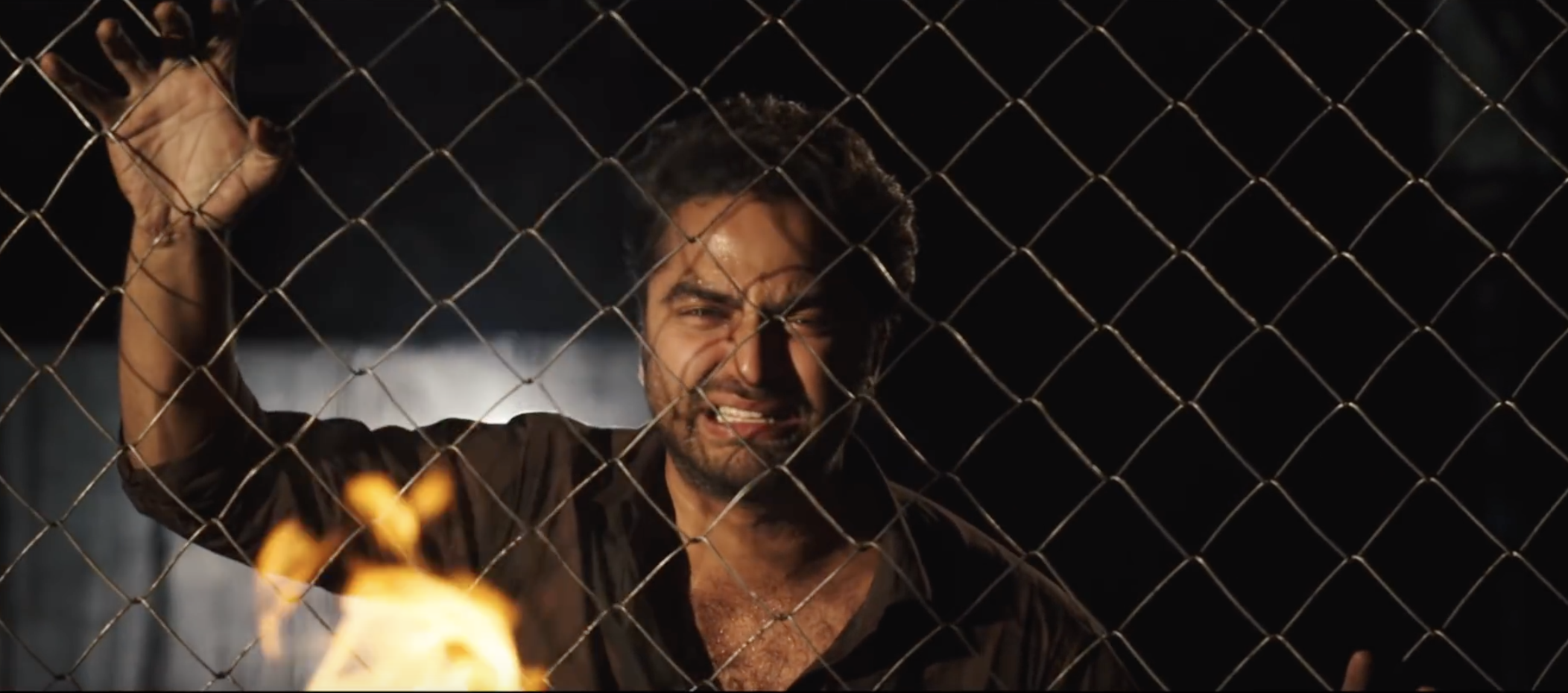
Sailesh Kolanu’s film Hit is a procedural crime drama that focuses more on the flawed investigator at the heart of the story rather than on the victim or the crime itself. It’s an interesting concept, but unfortunately isn’t backed up by enough suspense to overcome the rather pedestrian nature of the investigation. However, the addition of plentiful scientific procedures and a large field of suspects does keep the film engaging, while Vishwak Sen is good as the police investigator with a traumatic past.



HIT stands for Homicide Intervention Team, the department where Vikram (Vishwak Sen) works despite both his therapist and his girlfriend Neha (Ruhani Sharma) advising him to take some time off. There are frequent brief flashbacks to some traumatic moments in Vikram’s life, most often when he is confronted by fire, suggesting that he has some form of PTSD which threatens to derail his career if left unchecked. The film starts with the disappearance of a young female student, Preethi (Sahithi) after her car breaks down by the side of the road. The last person to see her is Police Officer Ibrahim (Murali Sharma) who lets Preethi use his phone to contact her father. When he drives past in the other direction he notices her speaking to someone in a dark blue car, and assumes it’s her father, but later realises his mistake when Preethi’s parents come to report her missing.



Neha is involved in Preethi’s case and when she also goes missing, investigating Preethi’s disappearance is the only way Vikram can get involved in the case. With the help of his trusty sidekick Rohit (Chaitanya Sagiraju) Vikram throws himself into the investigation, risking his job and potentially his sanity, as he desperately searches for Neha.
The film throws around a lot of scientific techniques, and in a very CSI-like fashion DNA tests come back immediately and pictures can be ‘de-pixilated’ to reveal more detail that was initially apparent. While this is interesting, it starts to become a little monotonous and repetitive, particularly when there are also the repeated flashbacks to the same 2 scenes that cause Vikram’s distress. In fact, much of the investigation feels like a TV series as Vikram sniffs, tastes and tests his way towards an answer. All that’s missing is the white-coated lab technician with an attitude! Instead we have Vikram’s rival who is initially tasked with finding Neha, but whose dislike of Vikram threatens to derail the entire investigation. Vikram also runs into difficulties with the head of HIT who appreciates Vikram’s intelligence but is intolerant of his maverick tendencies. What works well here is Vikram’s obvious frustration, and his careful and calculated methodology in working through the few clues he has. With each small snippet of information the investigation moves slowly but inexorably forward, while still leaving plenty of questions unanswered.


There are numerous red herrings thrown into the mix, but the final answer is a bit of a let-down, coming out of the blue and without any real build-up. The reason behind the abductions seems too inconsequential to be the cause of such an elaborate plan, and the characterisations of the key players up until that point also mean that the reveal doesn’t ring completely true.
Vishwak Sen is excellent as a smart investigator trying to deal with PTSD. At times his blanking out at key moments is a little overdone, but for the most part he is believable in the role. His romance with Neha is less successful, perhaps because the couple has little time together, but also because Neha’s dialogue with Vikram is generally stilted and unrealistic. A conversation where Neha asks Vikram to take time off and says she is worried about him is incredibly awkward and seems nothing at all like the concern someone really would feel for their lover in this type of situation. Vikram’s responses also appear rather off in this scene and perhaps this is why the entire search for Neha feels more like an intellectual puzzle that Vikram must solve rather than a race against time to save his lover. Indeed, neither Ruhani Sharma nor Sahithi have enough time on screen to make much impact, but Hari Teja has a better realised role and she is excellent as Preethi’s neighbour Sheela who is one of the main suspects in the disappearance.





The film also suffers from poor subtitling, with some terrible spelling mistakes and poor grammar which definitely does not help create any suspense. However Garry BH’s editing is first class and S. Manikandan adds atmosphere through good use of camera angles and lighting. As I was watching I kept thinking that HIT would be great as a web series where Sailesh Kolanu could have spent more time delving into the psychology of each character as the investigation brought them under the spotlight. The development of Vikram’s character is where the story really comes together well and adding more background about each suspect’s motivations would have helped create additional suspense. However, the end of the film does set up the plot for Case #2 (this was Case #1) so hopefully there will be some more detailed character development in the sequel. Despite its flaws, HIT has much to recommend it. There are some clever ideas here and while the idea of a flawed protagonist isn’t novel, the treatment here is different to most Telugu thrillers. Despite the disappointing reveal, the performances are good and the story engaging, particularly at the start of the second half. HIT is well worth catching in the cinemas, and I will definitely be looking out for Case #2.
Pingback: HIT: The Second Case | Cinema Chaat